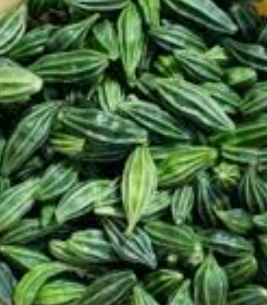 Image 1 of 4
Image 1 of 4

 Image 2 of 4
Image 2 of 4

 Image 3 of 4
Image 3 of 4

 Image 4 of 4
Image 4 of 4





Athalakkai / Momordica cymbalaria
Athalakkai (Momordica cymbalaria), also known as Karchikai, is a wild, underutilized vegetable with potential health benefits. It belongs to the Cucurbitaceae (gourd) family and is native to India.
1. Rich in Nutrients:
Fiber: Athalakkai is a good source of dietary fiber, which aids digestion and promotes gut health.
Vitamins and Minerals: It contains higher amounts of calcium, potassium, sodium, and Vitamin C compared to bitter gourd (Momordica charantia).
Other Nutrients: It also provides magnesium, iron, phosphorus, and beta-carotene.
2. Traditional Medicinal Uses:
Diabetes: Traditionally used to manage diabetes, with research suggesting hypoglycemic (blood sugar lowering) and hypolipidemic (cholesterol lowering) properties.
Other Uses: Traditionally used for treating rheumatism, ulcers, skin diseases, and diarrhea.
3. Potential Health Benefits (supported by research):
Antidiabetic: Research indicates potential antidiabetic properties.
Antioxidant: It has antioxidant properties, helping to combat free radicals in the body.
Hypolipidemic: May help lower cholesterol levels.
Hepatoprotective: May have a protective effect on the liver.
Cardioprotective: May have a beneficial effect on heart health.
Athalakkai (Momordica cymbalaria), also known as Karchikai, is a wild, underutilized vegetable with potential health benefits. It belongs to the Cucurbitaceae (gourd) family and is native to India.
1. Rich in Nutrients:
Fiber: Athalakkai is a good source of dietary fiber, which aids digestion and promotes gut health.
Vitamins and Minerals: It contains higher amounts of calcium, potassium, sodium, and Vitamin C compared to bitter gourd (Momordica charantia).
Other Nutrients: It also provides magnesium, iron, phosphorus, and beta-carotene.
2. Traditional Medicinal Uses:
Diabetes: Traditionally used to manage diabetes, with research suggesting hypoglycemic (blood sugar lowering) and hypolipidemic (cholesterol lowering) properties.
Other Uses: Traditionally used for treating rheumatism, ulcers, skin diseases, and diarrhea.
3. Potential Health Benefits (supported by research):
Antidiabetic: Research indicates potential antidiabetic properties.
Antioxidant: It has antioxidant properties, helping to combat free radicals in the body.
Hypolipidemic: May help lower cholesterol levels.
Hepatoprotective: May have a protective effect on the liver.
Cardioprotective: May have a beneficial effect on heart health.
Athalakkai (Momordica cymbalaria), also known as Karchikai, is a wild, underutilized vegetable with potential health benefits. It belongs to the Cucurbitaceae (gourd) family and is native to India.
1. Rich in Nutrients:
Fiber: Athalakkai is a good source of dietary fiber, which aids digestion and promotes gut health.
Vitamins and Minerals: It contains higher amounts of calcium, potassium, sodium, and Vitamin C compared to bitter gourd (Momordica charantia).
Other Nutrients: It also provides magnesium, iron, phosphorus, and beta-carotene.
2. Traditional Medicinal Uses:
Diabetes: Traditionally used to manage diabetes, with research suggesting hypoglycemic (blood sugar lowering) and hypolipidemic (cholesterol lowering) properties.
Other Uses: Traditionally used for treating rheumatism, ulcers, skin diseases, and diarrhea.
3. Potential Health Benefits (supported by research):
Antidiabetic: Research indicates potential antidiabetic properties.
Antioxidant: It has antioxidant properties, helping to combat free radicals in the body.
Hypolipidemic: May help lower cholesterol levels.
Hepatoprotective: May have a protective effect on the liver.
Cardioprotective: May have a beneficial effect on heart health.














